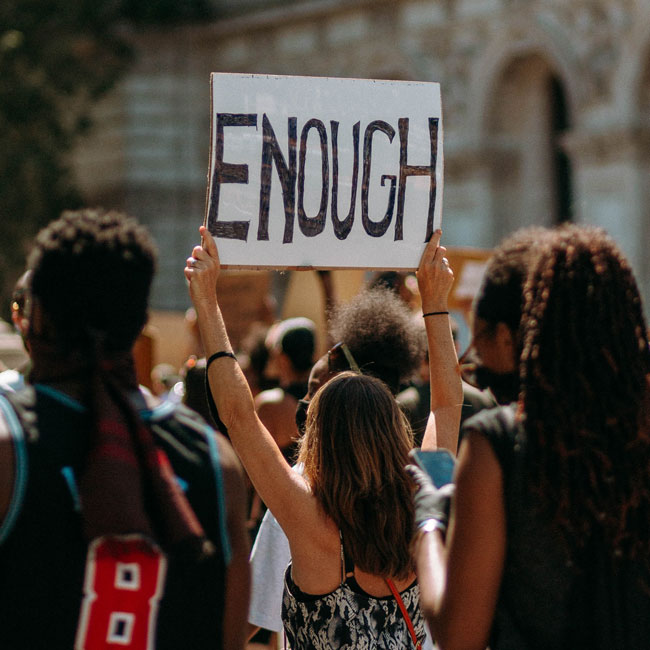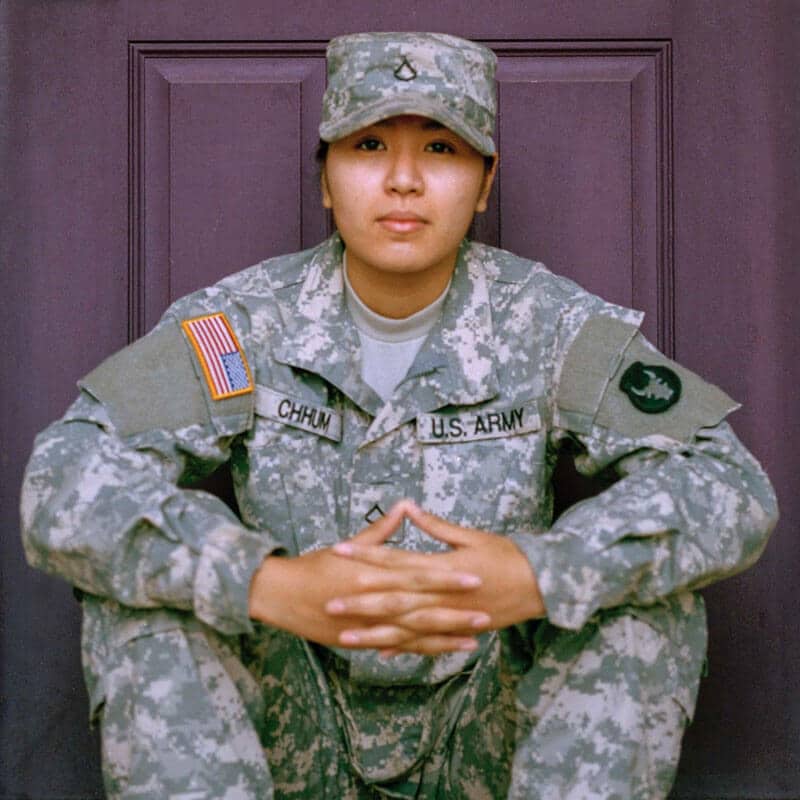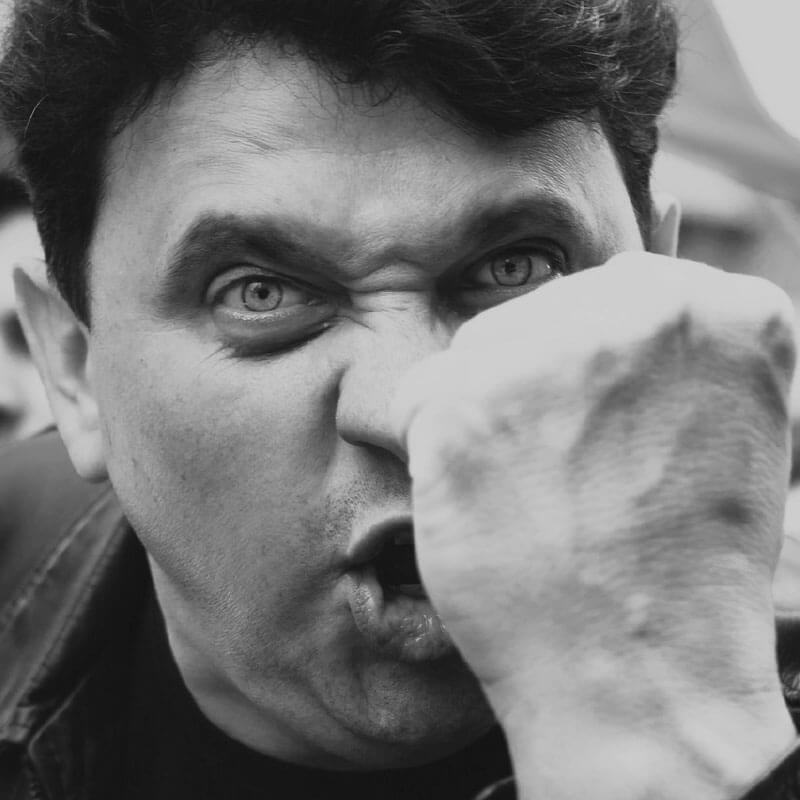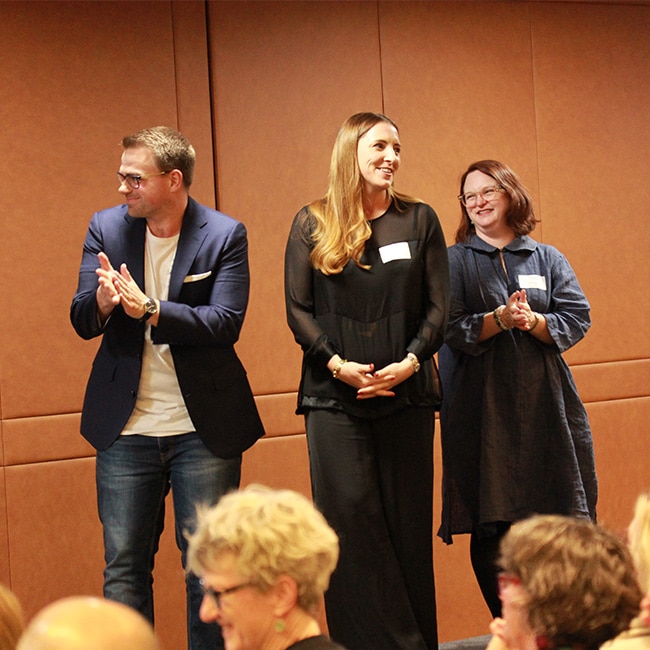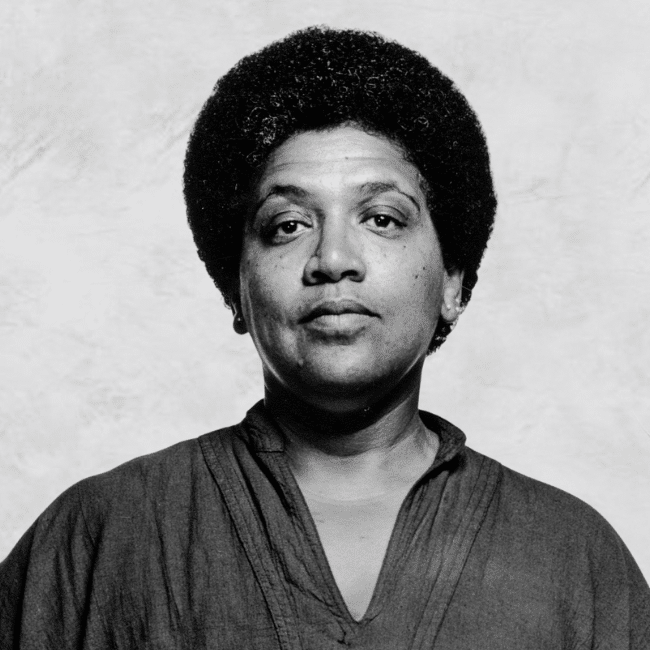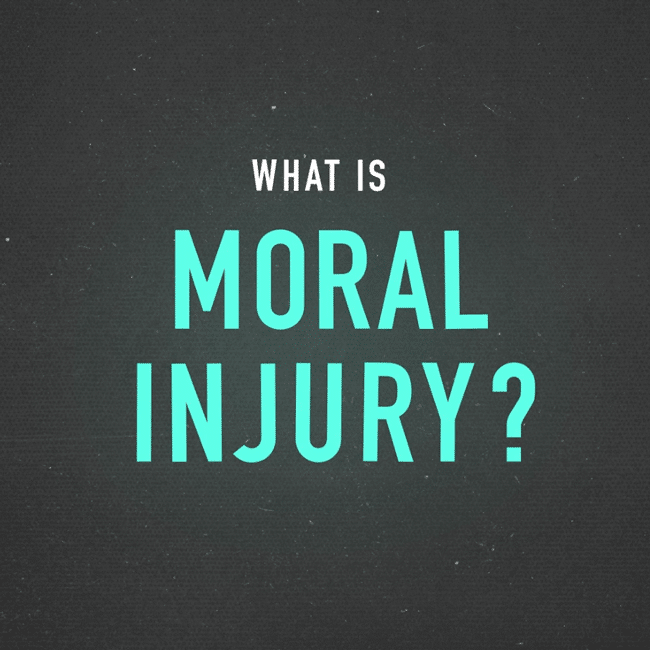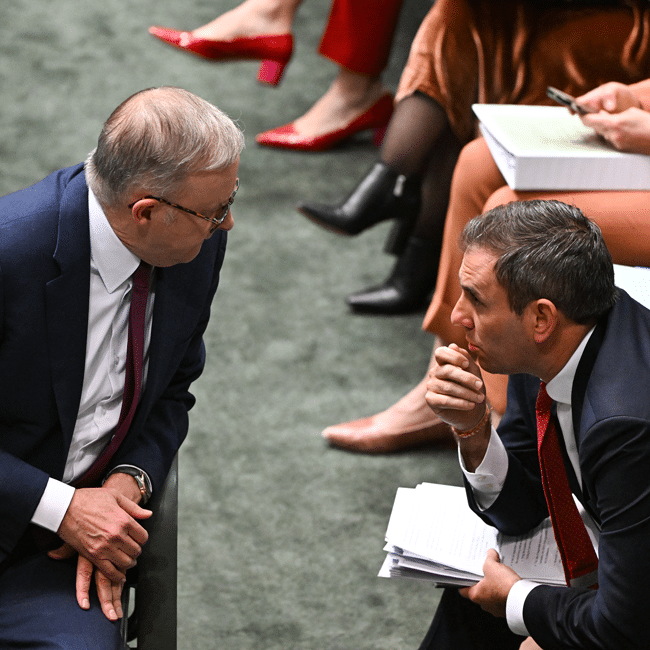Ethics Explainer: Moral Courage

Ethics Explainer: Moral Courage
ExplainerSociety + CulturePolitics + Human Rights
BY The Ethics Centre 29 APR 2025
Martin Luther King Jr, Rosa Parks, Frederick Douglass, Susan B. Anthony, Greta Thunberg, Vincent Lingiari, Malala Yousafzai.
For most, these names, and many more, evoke a sense of inspiration. They represent decades and centuries of steadfast moral conviction in the face of overwhelming national and global pressure.
Rosa Parks, risking the limited freedom she was afforded in 1955 America, refused to acquiesce to the transit segregation of the time and sparked an unprecedented boycott led by Martin Luther King Jr.
Frederick Douglass, risking his uncommon position of freedom and power as a Black man in pre-civil rights America, used his standing and skills to advocate for women’s suffrage.
There have always been people who have acted for what they think is right regardless of the risk to themselves.
This is moral courage. The ability to stand by our values and principles, even when it’s uncomfortable or risky.
Examples of this often seem to come in the form of very public declarations of moral conviction, potentially convincing us that this is the sort of platform we need to be truly morally courageous.
But we would be mistaken.
Speaking up doesn’t always mean speaking out
Having the courage to stand by our moral convictions does sometimes mean speaking out in public ways like protesting the government, but for most people, opportunities to speak up manifest in much smaller and more common ways almost every day.
This could look like speaking up for someone in front of your boss, questioning a bully at school, challenging a teacher you think has been unfair, preventing someone on the street from being harassed or even asking someone to pick up their litter.
In each case, an everyday occurrence forces us to confront discomfort, and potentially danger or loss, to live out our values and ideals. Do we have the courage to choose loyalty over comfort? Honesty over security? Justice over personal gain?
The truth is that sometimes we don’t.
Sometimes we fail to take responsibility for our own inaction. Nothing shows this better than the bystander effect: functionally the direct opposite to moral courage, the bystander effect is a social phenomenon where individuals in group or public settings fail to act because of the presence of others. Being surrounded by people causes many of us to offload responsibility to those around us, thinking: “Someone else will handle it.”
This is where another kind of moral courage comes into play: the ability to reflect on ourselves. While it’s important to learn how and when to speak up, some internal work is often needed to get there.
Self-reflection is often underestimated. But it’s one of the hardest aspects of moral courage: the willingness to confront and interrogate our own thoughts, habits, and actions.
If someone says something that makes you uncomfortable, the first step of moral courage is acknowledging your discomfort. All too often, discomfort causes us to disengage, even when no one else is around to pass responsibility onto. Rather than reckon with a situation or person who is challenging our values or principles, we curl up into our shells and hope the moment passes.
This is because moral courage can be – it takes time and practice to build the habits and confidence to tolerate uncomfortable situations. And it takes even more time and practice to prioritise what we think is right with friends, family and colleagues instead of avoiding confrontation in relationships that are already often complicated.
It can get even more complicated once we consider all of our options because sometimes the right ways to act aren’t obvious. Sometimes, the morally courageous thing to do is actually to be silent, or to walk away, or to wait for a better opportunity to address the issue. These options can feel, in the moment, akin to giving up or letting someone else ‘win’ the interaction. But that is the true test of moral courage – being able to see the moral end goal and push through discomfort or challenge to get there.
The courage to be wrong
The flipside to self-reflection is the ability to recognise, acknowledge and reflect with grace when someone speaks up against us.
It’s hard to be told that we’re wrong. It’s even harder to avoid immediately placing walls in our own defence. Overcoming that is the stuff of moral courage too – not just being able to confront others, but being able to confront ourselves, to question our understanding of something, our actions or our beliefs when we are challenged by others.
Whether these changes are worldview-altering, or simply a swapping of word choice to reflect your respect for others, the important thing is that we learn to sit with discomfort and listen. Listen to criticism but also listen to our own thoughts and figure out why our defences are up.
Because in the end, moral courage isn’t just about bold public stands. It’s about showing up—in big moments and more mundane ones—for what’s right. And that begins with the courage to face ourselves.

Ethics in your inbox.
Get the latest inspiration, intelligence, events & more.
By signing up you agree to our privacy policy
You might be interested in…
Opinion + Analysis, READ
Society + Culture
Read me once, shame on you: 10 books, films and podcasts about shame
Opinion + Analysis
Climate + Environment, Politics + Human Rights
Australia Day: Change the date? Change the nation
Opinion + Analysis
Health + Wellbeing, Society + Culture
The right to connect
Opinion + Analysis
Society + Culture
Why are people stalking the real life humans behind ‘Baby Reindeer’?
BY The Ethics Centre
The Ethics Centre is a not-for-profit organisation developing innovative programs, services and experiences, designed to bring ethics to the centre of professional and personal life.
Ethics Explainer: Just Punishment

Ethics Explainer: Just Punishment
ExplainerSociety + CulturePolitics + Human Rights
BY The Ethics Centre 6 DEC 2024
In 2001, Marcellus Williams was convicted of killing Felicia Gayle, found stabbed to death in her home in 1998.
Over two decades later, he was given the death penalty, directly against the wishes of the prosecutor, the jury and, notably, Gayle’s family.
Cases like this draw our attention to the nature of punishment and its role in delivering justice. We can think about justice, and hence what is just punishment, as a question about what we deserve. But who decides what we deserve, and on what basis?
There are many ways that people think about punishment, but generally it’s justified in some variation of the following: retribution, deterrence, rehabilitation, and/or restoration. These are not all mutually exclusive ideas either, but rather different arguments about what should be the primary purpose and mode of punishment
Purposeful Punishment
Punishment is often viewed through the lens of retribution, where wrongdoers are punished in proportion to their offenses. The concept of retributive justice is grounded in the idea that punishment restores balance in society by making offenders ‘pay’ in various ways, like prison time or fines, for their transgressions.
This perspective is somewhat intuitive for most people, as it’s reflected in our moral psychology. When we feel wronged, we often become outraged. Outrage is a moral emotion that often inspires thoughts of harming the wrongdoer, so retributive punishment can feel intuitively justified for many. And while it has roots in our evolutionary psychology, it can also be a harmful disposition to have in a modern context.
The 18th-century philosopher Immanuel Kant strongly defended retributive justice as a matter of principle, much like his general deontological moral convictions. Kant believed that people who commit crimes deserve to be punished simply because they have done wrong, irrespective of whether it leads to positive social outcomes. In his view, punishment must fit the crime, upholding the dignity of the law and ensuring that justice is served.
However, there are many modern critics of retributivism. Some argue that focusing solely on punishment in a retributive way overlooks the possibility of rehabilitation and societal reintegration. These criticisms often come from a consequentialist approach, focusing on how to create positive outcomes.
One of these is an ongoing ethical debate about the role of punishment as a deterrent. This is a consequentialist perspective that suggests punishment should aim to maximise social benefits by deterring future crimes. This view is often criticised because of its implications on proportionality. If punishment is used primarily as a deterrent, there is a high risk that people will be punished more harshly than their crimes warrant, merely to serve as an example. This approach can conflict with principles of fairness and proportionality that are central to most conceptions of justice. Some also consider it to be a view that misunderstands the motives and conditions that surround and cause common crime.
Other, more contemporary, consequentialist views on punishment focus on rehabilitation and restoration. Feminist philosophers, such as Martha Nussbaum, have proposed a broader, more compassionate view of justice that emphasises human dignity. Nussbaum suggests that a purely punitive system dehumanises offenders, treating them merely as vessels for punishment rather than as individuals with the capacity for moral growth and change.
They argue that this dehumanisation is a primary factor in high rates of recidivism, as it perpetuates the cycle of disadvantage that often underpins crime. Hence, an ability for change and reintegration is seen by some as crucial to developing pro-social methods of justice that decrease recidivism.
Importantly, these views are not inherently at odds with traditional punishment, like prison. However, they are critical of the way that punishment is enacted. To be in line with rehabilitative methods, prisons in most countries worldwide would need to see a significant shift towards models that respect the dignity of prisoners through higher quality amenities, vocations, education, exercise and social opportunities.
One unintuitive and hence potentially difficult aspect of these consequentialist perspectives is that in some cases punishment will be deemed altogether unnecessary. For example, if a wrongdoer is found to be impaired significantly by mental illness (e.g. dementia) to the extent that they have no memory or awareness of their wrongdoing, some would claim that any type of retributive punishment is wrong, as it serves no purpose aside from satisfying outrage. This can be a difficult outcome to accept for those who see punishment as needing to “even the scales”.
Justice and Punishment
The ethical implications of punishment become even more complex when considering factors like bias and the reality of disproportionate sentencing. For example, marginalised groups face more scrutiny and harsher sentences for similar crimes, both in Australia and globally. This disparity is often unconscious, resulting in a denial of responsibility at many steps in the system and a resistance to progress.
If punishment is disproportionately applied to disadvantaged groups, then it is not just. The ethical demand of justice is for equal treatment, where punishment reflects the crime, not the social status or identity of the offender.
Whether our idea of punishment involves revenge or benevolence, it’s important to understand the motivations behind our convictions. All the sides of the punishment spectrum speak to different intuitions we hold, but whether we are steadfast in our right to get even, or we believe an eye for an eye leaves the whole world blind, we must be prepared to find the nuance for the betterment of us all.

Ethics in your inbox.
Get the latest inspiration, intelligence, events & more.
By signing up you agree to our privacy policy
You might be interested in…
Opinion + Analysis
Society + Culture
The Ethics Centre Nominated for a UNAA Media Peace Award
Opinion + Analysis
Society + Culture, Politics + Human Rights
Pleasure without justice: Why we need to reimagine the good life
Opinion + Analysis
Politics + Human Rights
Is the right to die about rights or consequences?
Opinion + Analysis
Politics + Human Rights
How far should you go for what you believe in?
BY The Ethics Centre
The Ethics Centre is a not-for-profit organisation developing innovative programs, services and experiences, designed to bring ethics to the centre of professional and personal life.
Ethics explainer: The principle of charity

The principle of charity suggests we should assume good intentions about others and their ideas, and give them the benefit of the doubt before criticising them.
British philosopher and mathematician, Bertrand Russell, was one of the sharpest minds of his generation. Anyone deigning to offer a lecture in his presence at Cambridge University was sure to have every iota of their reasoning scrutinised and picked apart in excruciating detail.
Yet, it’s said that before criticising arguments, Russell would thank them warmly for sharing their views, then he might ask a question or two of clarification, then he’d summarise their position succinctly – often in more concise and persuasive terms than they themselves had used – and only then would he expose its flaws.
What Russell was demonstrating was the principle of charity in action. This is not a principle about giving money to the poor, it’s about assuming good intentions and giving others the benefit of the doubt when we interpret what they’re saying.
The reason we need charity when listening to others is that they rarely have the opportunity to say everything they need to say to support their view. We only have so many minutes in the day, so when we want to make an assertion or offer an argument, it’s simply not possible to account for every assumption, outline every implication and cover off all possible counterarguments.
That means there will inevitably be things left unsaid. Given our natural propensity to experience disagreement as a form of conflict, and thus shift into a defensive posture to protect our ideas (and, sometimes, our identity), it’s all too easy for us to fill in the gaps with less than charitable interpretations. We might assume the person speaking is ignorant, foolish, misled, mean spirited or riddled with vice, and fill the gaps with absurd assertions or weak arguments that we can easily dismantle.
We also have to decide whether they are speaking in good faith, or whether they’re just engaging in a bit of virtue signalling and didn’t really mean to offer their views up for scrutiny, or whether they’re trying to troll us. Again, it’s all too easy to allow our suspicions or defensiveness to take over and assume someone is speaking with ill intent.
However, doing so does them – and us – a disservice. It prevents us from understanding what they’re actually trying to say, and it blocks us from either being persuaded by a good point or offering a valid criticism where one is due. Failing to offer charity is also a sign of disrespect. And it’s well known that when people feel disrespected, they’re even more likely to double down on their defensiveness and fight to the bitter end, even if they might otherwise have been open to persuasion.
It’s probably no surprise to hear that the internet is a hotbed of uncharitable listening. Many people have been criticised, dismissed, attacked or cancelled because they have said or done something ambiguous – something that could be interpreted in either a benign or a negative light. Some commentators on social media are all too ready to uncharitably interpret these actions as revealing some hidden malice or vice, and they leap to condemnation before taking the time to unpack what the speaker really meant.
Charity requires more from us, but the rewards can be great. Charity starts by assuming that the person speaking is just as informed, intelligent and virtuous as we are – or perhaps even more so. It encourages us to assume that they are speaking in good faith and with the best of intentions.
It requires us to withhold judgement as we listen to what’s being said. If there are things that don’t make sense, or gaps that need filling, charity encourages us to ask clarificatory questions in good faith, and really listen to the answers. The final step is to repeat back what we’ve heard and frame it in the strongest possible argument, not the weakest “straw man” version. This is sometime referred to as a “steel man”.
Doing this achieves two things. First, the speaker will feel heard and respected. That immediately puts the relationship on a positive stance, where everyone feels less need to defend themselves at all costs, and it can make people open to listening to alternative viewpoints without feeling threatened.
Secondly, it gives you a fighting chance of actually understanding what the other person really believes. So many conversations end up with us talking past each other, getting more frustrated by the minute. Arriving at a point of mutual understanding can be a powerful way to connect with someone and have an actually fruitful discussion.
It is important to point out that exercising charity doesn’t mean agreeing with whatever other people say. Nor does it mean excusing statements that are false or harmful.
Charity is about how we hear what is being said, and ensuring that we give the things we hear every possibility to convince us before we seek to rebut them.
However, if we have good reason to believe that what they’re saying, after we’ve fully understood it in its strongest possible form, is false or harmful, then we need not agree with them. Indeed, we ought to speak out against falsehood and harm whenever possible. And this is where exercising charity, and building up respect, might make others more receptive to our criticisms, as were many of the people who gave a lecture in the presence of Bertrand Russell.
The principle of charity doesn’t come naturally. We often rail against views that we find ridiculous or offensive. But by practising charity, we can have a better chance of understanding what people are saying and of convincing them of the flaws in their views. And, sometimes, by filling in the gaps in what others say with the strongest possible version of their argument, we might even change our own mind from time to time.
This article has been updated since its original publication on 10 March 2017.

Ethics in your inbox.
Get the latest inspiration, intelligence, events & more.
By signing up you agree to our privacy policy
You might be interested in…
Opinion + Analysis
Business + Leadership, Relationships, Society + Culture
Renewing the culture of cricket
Opinion + Analysis
Business + Leadership, Relationships
There’s no good reason to keep women off the front lines
Big thinker
Relationships
Big Thinker: Immanuel Kant
Explainer
Relationships
Ethics Explainer: Ad Hominem Fallacy
BY The Ethics Centre
The Ethics Centre is a not-for-profit organisation developing innovative programs, services and experiences, designed to bring ethics to the centre of professional and personal life.
Big Thinker: Philippa Foot

Philippa Foot (1920-2010) is one of the founders of contemporary virtue ethics, reviving the dominant Aristotelian ethics in the 20th century. She introduced a genre of decision problems in philosophy as part of the analysis in debates around abortion and the doctrine of double effect.
Philippa Foot was born in England in 1920. While receiving no formal education throughout her childhood, she obtained a place at Somerville College, one of the two women’s colleges at Oxford. After receiving a degree in 1942 in politics, philosophy and economics, she briefly worked as an economist for the British Government. Besides this, she spent her life at Oxford as a lecturer, tutor, and fellow, interspersed with visiting professorships to various American colleges, including Cornell, MIT, City University of New York and University of California Los Angeles.
Virtue ethics
In the philosophical world, Philippa Foot is best known for her work repopularising virtue ethics in the 20th century. Virtue ethics defines good actions as ones that embody virtuous character traits, like courage, loyalty, or wisdom. This is distinct from deontological ethical theories which encourage us to think about the action itself and its consequences or purpose instead of the kind of person who is doing the action.
“What I believe is that there are a whole set of concepts that apply to living things and only to living things, considered in their own right. These would include, for instance, function, welfare, flourishing, interests, the good of something. And I think that all these concepts are a cluster. They belong together.”
The doctrine of double effect
Imagine you are the driver of a runaway trolley that is barrelling down the tracks. You have the option to do nothing, and let five people die, or the option to switch the tracks and kill one person.
This is Philippa Foot’s famous trolley problem. This thought experiment encourages us to think about the moral differences between actively causing death (e.g. pulling a lever to get the trolley to change tracks) and passively or indirectly causing death (doing nothing, allowing the trolley to kill five people. Utilitarians might argue that five deaths is far less desirable than one death, but many people instinctively feel that actively causing a death has a different moral weight than doing nothing.
Perhaps Foot’s most influential paper is The Problem of Abortion and the Doctrine of Double Effect, published in 1967. Here, she explains what is called the Doctrine of the Double Effect, which explains why some very bad actions (like killing) might be permissible because of their potentially positive outcomes. The trolley problem is one example of the doctrine of double effect, but she also uses various other cases.
“The words “double effect” refer to the two effects that an action may produce: the one aimed at, and the one foreseen but in no way desired. By “the doctrine of the double effect” I mean the thesis that it is sometimes permissible to bring about by oblique intention what one may not directly intend.”
For example, what if one person needed a large dose of a rare medicine to save their life, but that same amount of medicine could save the lives of five others who each needed less? Would we think that the “oblique intention” of a nurse who administers the medicine to one person instead of the five people is justified?
Foot finds that it would be wise to save the five people by giving them each a one-fifth dose of the medicine. However, she encourages us to interrogate why this feels different from the organ donor case, where we save five people who need organ transplants by sacrificing one person.
“My conclusion is that the distinction between direct and oblique intention plays only a quite subsidiary role in determining what we say in these cases, while the distinction between avoiding injury and bringing aid is very important indeed.”
When the trolley problem is taken to its logical conclusion, these fallacies become even more obvious. As John Hacker-Wright writes, the trolley problem “raises the question of why it seems permissible to steer a trolley aimed at five people toward one person while it seems impermissible to do something such as killing one healthy man to use his organs to save five people who will otherwise die.”
Foot has also contributed to moral philosophy with her writing on determinism and free will, reasons for action, goodness and choice, and discussions of moral beliefs and moral arguments.

Ethics in your inbox.
Get the latest inspiration, intelligence, events & more.
By signing up you agree to our privacy policy
You might be interested in…
LISTEN
Health + Wellbeing, Business + Leadership, Society + Culture
Life and Shares
Opinion + Analysis
Society + Culture
The power of community to bring change
Opinion + Analysis
Society + Culture
David Lynch’s most surprising, important quality? His hope
Opinion + Analysis
Business + Leadership, Society + Culture
A win for The Ethics Centre
BY The Ethics Centre
The Ethics Centre is a not-for-profit organisation developing innovative programs, services and experiences, designed to bring ethics to the centre of professional and personal life.
Big Thinker: Audre Lorde
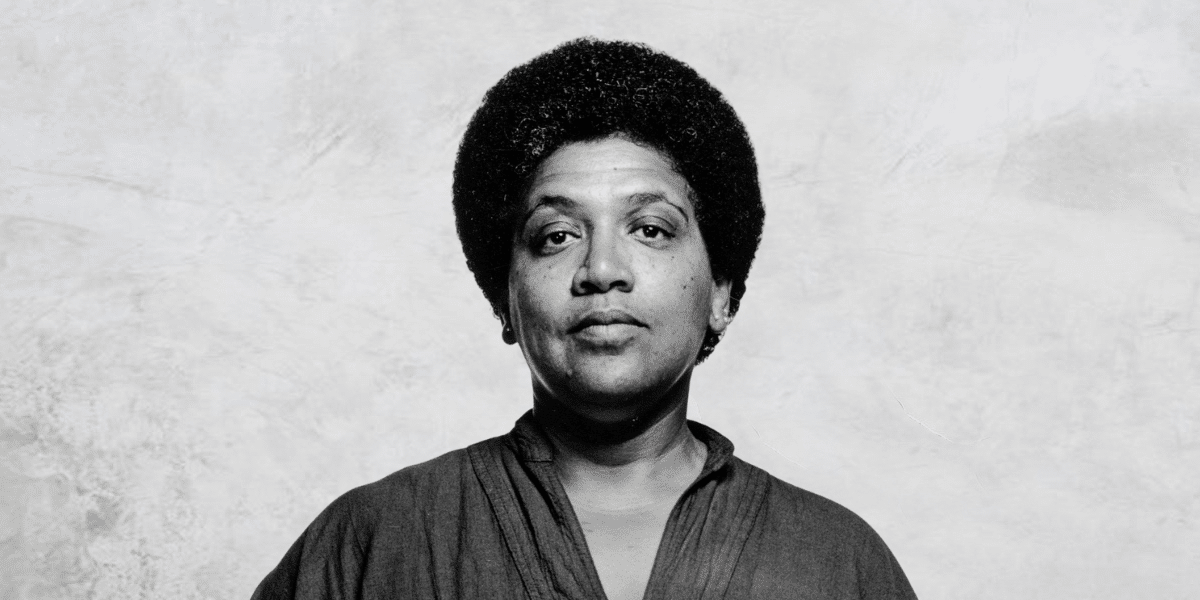
Big Thinker: Audre Lorde
Big thinkerPolitics + Human RightsSociety + Culture
BY The Ethics Centre 11 JAN 2024
Professionally a poet, professor and philosopher, Audre Lorde (1934-1992) also proudly carried the titles of intersectional feminist, civil rights activist, mother, socialist, “Black, lesbian [and] warrior.” She is also the woman behind the popular manifesto “the master’s tools will never dismantle the master’s house.”
Born Audrey Geraldine Lorde in New York City, to Frederic and Linda Belmar Lorde, on the 18th of February 1934, Lorde fell in love with poetry as a form of expression at a young age.
“I used to communicate through poetry,” she recalled in conversation with Claudia Tate for Black Women Writers at Work. “When I couldn’t find the poems to express the things I was feeling, that’s what started me writing poetry,” she said. Lorde was thirteen.
Alongside her education at Hunter High School in New York, and working on the school’s literary magazine, she published her first piece of literature in the 1951 April issue of Seventeen Magazine. She earned a Bachelor of Arts from Hunter College in 1959, preceding a master’s degree in library science in 1961 from Columbia University. Following that, Lorde worked as a librarian for public schools in New York City from 1961 to 1968, working her way to head librarian of Manhattan’s Town School. In 1980, Lorde and her friend, a fellow writer and activist, created a publishing house, ‘Kitchen Table: Women of Color Press.’ Throughout these years, Lorde was prolific and wrote some of her most recognised volumes of poetry. A full discography of her work can be found at the end of this article.
Authorship and legacy
Expression of self and personal philosophy through literature became a cornerstone of Audre Lorde’s life and one of her greatest contributions to the discourse on discrimination and equality today.
A proud feminist, Lorde’s authorship strived to offer an authentic depiction of the female experience; the good, the bad and the complex. She felt academic discourse on feminism was white and heterosexual centric, lacking consideration of the lived realities of Black and queer women. Thus, she put the stories of these women at the centre of her literature.
Lorde’s philosophy focussed particularly on intersectional discrimination and academic discourse’s inability to accommodate it. She revered differences amongst humans, arguing true equality can only be achieved through celebrating rather than homogenising our different identities.
Third Wave Feminism
Lorde was a prominent member of the women’s and LGBTQIA+ rights movements during the second wave of feminism. As a woman with many of her own labels, Lorde used her lived experience and literary expertise to shine a light on the experience and voices of other women with multiple signifiers. She implored society to confront racist feminism, the nuances of the Black female experience and the cognitive dissonance between educating yourself on feminism whilst not bearing witness to the experiences of all women, – particularly women of colour whose intellectual labour and contributions to such academia have been so routinely overlooked. Thus, helping kickstart the third wave of feminism, also spearheaded by another big thinker, Kimberle Crenshaw.
Through her words, Lorde aimed to acknowledge and capture the pain as well as the joy she felt as an openly queer Black woman. This bare-all intent and celebration of individuality is particularly felt in her work, The Cancer Journals and her subsequent public encouragement of other breast cancer survivors to wear their mastectomies on their chest, rather than accept prosthesis purely for aesthetic motivations. “It is that very difference that I wish to affirm… I lived it, I survived it, and wish to share that strength with other women.”
Philosophy on difference
Lorde was an advocate for difference amongst human beings. For her, difference was the key to eradicating discrimination and moving forward in unity. As we constantly reevaluate what it means to be human, what we hold dear and the ethical pillars we lean on to guide us, Lorde philosophised that it was vital we harness rather than fear that which separates us from our friends, peers and enemies. Rather than homogenising humanity, the future of equality relies on our ability to relate across differences. Finding community is not about conforming, it is about accepting. It must be an act of opening up, not of shutting down.
Lorde examined difference particularly through an intersectional feminist lens. Identifying and subverting the conditioning of women to view their differences as causes for separation and self-judgement.
What we need first, however, is courage. To have our beliefs and perspectives stretched and challenged as we begin the journey of embracing that which makes us different from those around us.
Intersectionality
Lorde was acutely aware of and vocal about the pressure on marginalised people to divide their identities in order to fight for recognition of their discrimination. Academia was constructed to examine, debate and interrogate ways of being. At the time, it was established by white men, and thus contributions to this school of thought were limited to the lived realities and perspectives of these men. As a result, the notion of a human norm came about, and this norm was white, male, heterosexual and often, but not always, wealthy, educated and upper class. Every deviation from this ideal was considered a handicap and treated as such.
In her speech at the New York University Institute for the Humanities, where she debuted her admonishment: “the master’s tools will never dismantle the master’s house,” Lorde cautioned people of colour and other marginalised demographics against the pressure to conform to the limited criteria of ‘acceptable’ laid out by discrimination discourse in white academia, in order to have their needs met. She argued fighting for equality within a system with the notion of a human ideal will only lead to disappointment. True and deeply entrenched equality can only happen through an entire paradigm shift; the unravelling of a human norm in the first place.

Ethics in your inbox.
Get the latest inspiration, intelligence, events & more.
By signing up you agree to our privacy policy
You might be interested in…
Opinion + Analysis
Politics + Human Rights
You’re the Voice: It’s our responsibility to vote wisely
Opinion + Analysis
Business + Leadership, Politics + Human Rights
Survivors are talking, but what’s changing?
Opinion + Analysis
Society + Culture
The Ethics Centre Nominated for a UNAA Media Peace Award
Opinion + Analysis
Politics + Human Rights, Relationships
Ask an ethicist: do teachers have the right to object to returning to school?
BY The Ethics Centre
The Ethics Centre is a not-for-profit organisation developing innovative programs, services and experiences, designed to bring ethics to the centre of professional and personal life.
Moral injury
Each of us believes that, at our core, we are fundamentally ethical people. We always try to do the right thing. We have deeply held values and principles that we are not willing to compromise.
But sometimes we are thrust into situations where there appears to be no ‘right answer’ – where the best we can hope for is to take the ‘least bad’ option or, worse still, where we are forced to act against what we believe is right.
Moral injury is caused when we are compelled to act against what we believe is right in a high stakes situation.

Ethics in your inbox.
Get the latest inspiration, intelligence, events & more.
By signing up you agree to our privacy policy
You might be interested in…
Opinion + Analysis
Business + Leadership
Can there be culture without contact?
Big thinker
Business + Leadership
Big Thinker: Karl Marx
Opinion + Analysis
Politics + Human Rights, Business + Leadership
Political promises and the problem of ‘dirty hands’
Opinion + Analysis
Health + Wellbeing, Relationships
Women must uphold the right to defy their doctor’s orders
BY The Ethics Centre
The Ethics Centre is a not-for-profit organisation developing innovative programs, services and experiences, designed to bring ethics to the centre of professional and personal life.
Unconscious bias
Our brains are evolved to help us survive.
That means they take a lot of shortcuts to help us get through the day. These shortcuts, or heuristics, are vital. But they come at a cost. Learn what unconscious bias is and how you become aware of your own unconscious bias.
Ethics in your inbox.
Get the latest inspiration, intelligence, events & more.
By signing up you agree to our privacy policy
You might be interested in…
Big thinker
Relationships
Big Thinker: Steven Pinker
Opinion + Analysis
Business + Leadership, Relationships, Society + Culture
Extending the education pathway
Opinion + Analysis
Relationships
Enough with the ancients: it’s time to listen to young people
Opinion + Analysis
Climate + Environment, Politics + Human Rights, Relationships
This is what comes after climate grief
BY The Ethics Centre
The Ethics Centre is a not-for-profit organisation developing innovative programs, services and experiences, designed to bring ethics to the centre of professional and personal life.
Moral intuition and ethical judgement
By checking in to our intuitions and using them to inform our judgements, we can come up with decisions that make sense, but also feel right.
Ethics in your inbox.
Get the latest inspiration, intelligence, events & more.
By signing up you agree to our privacy policy
You might be interested in…
Opinion + Analysis
Relationships
Ask an ethicist: How should I divvy up my estate in my will?
Explainer
Relationships
Ethics Explainer: Perfection
Opinion + Analysis
Health + Wellbeing, Relationships
Anthem outrage reveals Australia’s spiritual shortcomings
Opinion + Analysis
Relationships, Climate + Environment
Blindness and seeing
BY The Ethics Centre
The Ethics Centre is a not-for-profit organisation developing innovative programs, services and experiences, designed to bring ethics to the centre of professional and personal life.
What is the difference between ethics, morality and the law?
What is the difference between ethics, morality and the law?
WATCHRelationships
BY The Ethics Centre 1 NOV 2023
The world around us is a smorgasbord of beliefs, claims, rules and norms about how we should live and behave.
It’s important to tease this jumble of ethical pressures apart so we can put them in their proper place. Otherwise, it can be hard to know what to do when some of these requirements contradict others. Let’s talk about three different categories of demands on how we should live: ethics, morality and law.
Ethics in your inbox.
Get the latest inspiration, intelligence, events & more.
By signing up you agree to our privacy policy
You might be interested in…
Big thinker
Relationships
Big Thinker: Tyson Yunkaporta
Opinion + Analysis
Relationships
Free speech has failed us
Opinion + Analysis
Health + Wellbeing, Politics + Human Rights, Relationships, Science + Technology
The value of a human life
Opinion + Analysis
Business + Leadership, Relationships
Game, set and match: 5 principles for leading and living the game of life
BY The Ethics Centre
The Ethics Centre is a not-for-profit organisation developing innovative programs, services and experiences, designed to bring ethics to the centre of professional and personal life.
Virtue ethics
What makes something right or wrong?
One of the oldest ways of answering this question comes from the Ancient Greeks. They defined good actions as ones that reveal us to be of excellent character.
What matters is whether our choices display virtues like courage, loyalty, or wisdom. Importantly, virtue ethics also holds that our actions shape our character. The more times we choose to be honest, the more likely we are to be honest in future situations – and when the stakes are high.
Ethics in your inbox.
Get the latest inspiration, intelligence, events & more.
By signing up you agree to our privacy policy
You might be interested in…
Opinion + Analysis
Relationships, Society + Culture
The self and the other: Squid Game’s ultimate choice
Opinion + Analysis
Relationships
In two minds: Why we need to embrace the good and bad in everything
Opinion + Analysis
Relationships
Ozi Batla: Fatherhood is the hardest work I’ve ever done
Opinion + Analysis
Health + Wellbeing, Relationships









